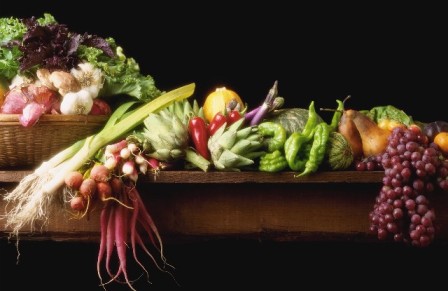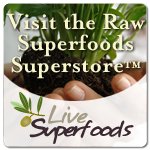|
The Health Benefits and Advantages of Natural and Organic Food
Making the switch to an organic and natural food diet is a wise choice for all of us who care about our health and are concerned about the quality of our food supply.
We are bombarded by the media with what seems like endlessly conflicting notions about what it means to eat healthy. Something that should come naturally to all of us -- eating the right foods that offer the most benefit to the body -- has become a confusing struggle.
This is complicated by the fact that the food choices that we have available to us are often lacking in nutritional value, are chemically altered, or otherwise not supportive of a healthy lifestyle. In the west, we are able to buy food from all around the world whenever we want, regardless of whether or not it is in season or even available in our local area. Our grocery aisles are also filled with prepackaged products containing additives and artificial ingredients, and so-called “foods” that are simply unnatural and unfit for human consumption.
Natural and organic food, particularly fruits and vegetables and other plant based foods such as grains, is an alternative which is safer and healthier to eat than conventionally grown food. The main reason for this is because it is grown without the use of pesticides, according to organic farming methods. In fact, 71% of non organic or conventionally grown produce contains pesticide residues, compared to only 13% for organically grown produce. (ofrf.org) This has obvious implications for human health, as well as the health of our planet, resulting in adverse effects upon the environment in the form of polluted and pesticide contaminated soil and water. Pesticide residues on conventionally grown foods are linked to a variety of serious and chronic health problems, including brain and nervous system abnormalities, diabetes, endocrine disorders, and cancer. In her book “Silent Spring”, Rachel Carson describes a phenomenon called “bio-magnification”. This is a process in which pesticides and other synthetic chemicals used in modern agriculture “increase in concentration” or become “magnified” as they move up the food chain. Bioaccumulation is what happens in the tissues of an individual organism (such as a person or animal) as a result of increased levels of substances such as pesticides being absorbed from food or water.
According to a study by the OrganicCenter.org, “…the average American exposes him or herself to 10-18 pesticide residues daily through the consumption of milk, tap water, and produce”. Imagine all those chemicals that we are putting into our bodies on a daily basis! In addition to the restriction on pesticides, food that is organic is grown and produced with a minimal amount of processing, and without the use of artificial ingredients or preservatives. It also does not make use of irradiation, sewage sludge, antibiotics, hormones or GMO’s – otherwise known as genetically modified organisms. The Organic Center study also found that the nutritional quality of organic food tends to be superior to that of conventionally grown, non organic food. It is higher in antioxidants and protein as well as key vitamins and minerals such as Vitamins A, C, and E, potassium, and phosphorus. Not only is organic food healthier and safer than conventional food, it also tastes better. There is a real difference in the quality of it that makes it taste fresher and “cleaner” than non-organic food. It is the next best thing to eating fruits and vegetables that have been picked fresh from the garden. Of course, you can also grow it yourself and have the best of both worlds!
Organic foods are becoming increasingly popular and widely available as more and more people become aware of the benefits of choosing organic. Many grocery stores are already beginning to carry more organic food choices on their shelves. If your local store is not already doing this, talk to the manager or contact the company and request them to start carrying organic products and produce from local growers! Visiting your local Farmer’s Market or food co-op is another great way to not only support the organic industry, but to support local farmers and growers in your area.
Don’t let the cost of going organic scare you away from a healthier lifestyle. Learn how you can save money buying organic food here.
Organic farming and agriculture is the foundation of the organic movement. Learn more about organic farming here.
You don’t have to give up chocolate to go organic! Learn the facts about organic chocolate here and why it is healthy AND environmentally sustainable. Chocolate is not only the world’s favorite sweet treat, it is also filled with a variety of nutrients. Click here to discover even more chocolate health benefits.
Visit our history of chocolate page to learn more about the fascinating story of chocolate. Chocolate comes from the cacao tree, and cacao is an important player in the rainforest ecosystem. Find out about the cacao tree here and how cacao can be grown sustainably.
Things You Can Do:
1. Buy organic food whenever possible.
2. Find out more about Farmer’s Markets and Co-ops and where to buy organic food in your geographic region at www.foodroutes.org and www.localharvest.org.
3. Invest in a water filtration system to cut down on pesticide residues.
4. Make sure to always wash and clean produce before using with a non-detergent fruit and vegetable wash. 5. For more food news and the latest consumer info. check out www.notinmyfood.org.
Return from Natural and Organic Food to Green-Organic-World.com's Homepage
|










